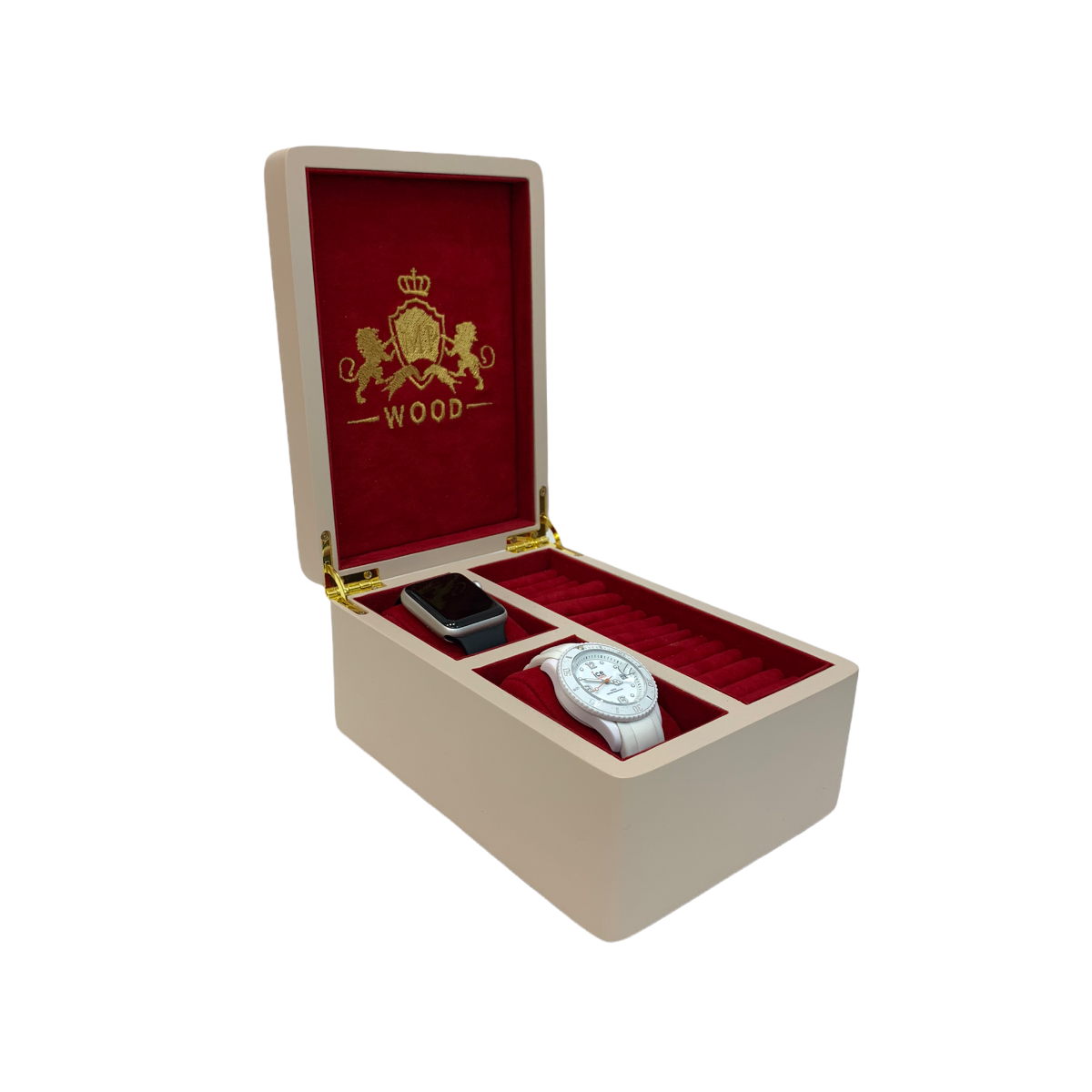
Keeping watches can be easy
Caring for your watch is essential to keep your watch functioning and looking its best. Keeping your watch in excellent condition will allow you to pass it on to the next generation. Or you can sell it for a bargain. You can continue to enjoy your watch for years to come. In this article, we will talk about options for storing watches when you are not wearing them.
It is required to store the watch at a temperature that will not destroy the oil in the mechanism. Low and high temperatures should not be allowed. For example, leaving the watch in the car at night in winter or summer in hot weather. It is not recommended to store the watch near sources of magnetic fields. For example, professional audio equipment, mobile phone speakers, magnetic locks.
There are a number of options for storing watches: the original box, display case, case, winder, soft cases, safes.
Some wooden boxes are made especially for watches
Keep documents, warranty cards and watch certificates in protective bags in a safe place, for example, in a safe. Paper documents need, as well as watches, to be protected from moisture. If you decide to sell the watch, the original packaging and paperwork will increase the resale value of the watch. Mechanical watches must be wound regularly and correctly. For watches with automatic winding, a special box has been developed – a winder. In winders, automatic watches are in motion, which mimics wearing them on the wrist. As a result, the watch remains fully wound and shows the exact time. Many winder models act as a showcase, showcasing your luxury watch in style.
The working mechanism of watch is also important
It is necessary to take into account the possibility of magnetization of the watch from the winder engine, which will lead to incorrect operation of the mechanism. It is important to choose the correct direction of rotation of the winder. When choosing a model, consider the features of your watch and mechanism. We recommend keeping watches with perpetual calendar functions, annual calendar functions and complex astronomical functions in the winter in order to avoid repairs later. It is also important to consider that the mechanism is in good condition in order to avoid drying out of lubricants and wear of parts. At the same time, using a winder, it is important to timely maintain the watch (repassage), since the constant operation of the clock mechanism with oil dried in the bearings will lead to breakage.
If the quartz watch is not going to be used for a long time, it is recommended to pull out the crown to stop the watch. This action is required in order to extend the life of the battery, after which the mechanism may be damaged due to electrolyte leakage.
Showing your collection is pleasure
The display box storage option is suitable for owners who prefer to place the watch behind glass in a static position. The watch in the display box is clearly visible from all sides. It will also allow you to admire the watch when it is not on your wrist.
If there are several watches in the collection, then cases with dividers are suitable for convenient and compact storage. With this storage option, all the watches in the collection are visible. That will help you choose the watch to wear on that day.
Soft cases are lightweight and durable options for storing your watch while traveling. Taking up little space in a bag or suitcase, soft cases will protect the watch from mechanical damage. In addition, the weight of such cases is negligible compared to stationary cases, which will be a great advantage when the weight of luggage is limited.
It is preferable to store especially valuable luxury watches in a special safe. Such safes contain separate sections for watches with automatic and manual winding, for spare parts and straps, for original boxes and documents.
When putting away the watch for long-term storage, we recommend winding the watch at least once a month by turning the crown.
In conclusion, we want to note that regardless of whether you use the watch or store it in a convenient place, the frequency of preventive maintenance (repassage) does not change.